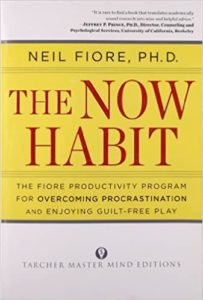
You know what you should be doing; you just can’t seem to get to it. Procrastination is a normal, near-universal phenomenon. Most people procrastinate to some degree, and some chronic procrastinators can waste years of their life trapped in this cycle. It can be sobering to realize just how much this habit is holding you back.
Why do you procrastinate? And how to stop procrastinating?
From time to time, you may find yourself avoiding or delaying a task, all the while checking social media or else seemingly working on other productive tasks such as cleaning or organizing. You’d rather do anything else than what you should be working on.
Sounds familiar? If so, you’re not alone!
As with most habits, it’s possible to stop procrastinating. But first, you must understand why you procrastinate in the first place. Let’s nail down the basics.
Why Do You Procrastinate?
Procrastination is often confused with laziness, but these two concepts couldn’t be more different.
Procrastination happens to be an active process where you give in to an impulse and focus on something else instead of what you actually should be doing. It includes an aspect that’s counterproductive or irrational. Laziness, on the other hand, suggests an unwillingness to act or apathy.
Strategies for overcoming procrastination depend on why it occurs in the first place. One thing you must understand is that the human brain values instant gratification more than future rewards. Basically, you have two selves: your future self and your present self. When you set goals, you’re actually making plans for your future self. But your brain is wired to prioritize the needs of your current self.
Only the present self can take action. And this is why you find yourself struggling to get to the gym or getting started on that project; the rewards are so far in the future that it’s really not worth it for your present self. Your present self wants a donut or to watch Netflix; it values immediate rewards.
How to Stop Procrastination
But simply choosing pleasure over discipline isn’t the only reason people procrastinate. Procrastination has many faces. Sometimes it’s an attempt to avoid negative emotions. Other times, you’re just paralyzed by overwhelming expectations.
With that said, let’s get into how you can overcome this habit based on why you procrastinate.
1. If you struggle with delayed gratification
Find a way to make the benefits of long-term choices more immediate. This way, you won’t find yourself squeezing a task in just before the deadline. Bring future rewards to the present moment by finding ways to reward yourself along the way.
Breaking long-term assignments into multiple smaller tasks can help you prioritize better. Then you can reward yourself after completing these tasks, whether it’s with an episode of your favorite TV show or a few minutes of social media.
Another strategy to overcome delayed gratification is temptation bundling. Simply put, you should bundle a behavior that’s good for you in the long run with one that feels good in the moment. For instance, only listen to podcasts you love while exercising or only watch your favorite show while doing household chores.
2. If you’re afraid of failure
Perfectionism and procrastination are intrinsically linked. Perfectionism isn’t just about having high standards, as it’s often belied by the belief that your performance is somehow tied to your self-worth. You find yourself grinding to a halt because you’d rather avoid doing a task than do it imperfectly.
There’s no easy way to overcome a fear of failure. It requires deep introspection as you must untangle performance from self-worth. Remember, there’s a crucial difference between who you are and what you achieve. In the meantime, you should set realistic and achievable goals. Recognize that procrastination for you is about avoiding negative emotions.
Remember, it’s normal to feel overwhelmed, especially when you’re just starting. It’s okay to mess up. It’s okay to pivot midway or do over a task.
Do you have a hard time dealing with rejection? Click here to find ways to handle it.
3. If you’re easily distracted
Sometimes you reach out for your phone simply because it’s there. Or maybe, you can’t resist checking your notifications. Before you know it, you’ve spent hours browsing through TikTok. If you easily succumb to distractions, then you also struggle with delayed gratification. Your brain constantly wants a hit of dopamine.
To overcome this, you should optimize your environment. Keep in mind it’s best to avoid temptation rather than resist it. If you can’t help but check your cell phone, put it away. Turn off notifications or work in isolation—more so, if you’re easily distracted by conversation.
Also, don’t fall into the trap of multitasking. Juggling two or three tasks keeps you distracted and deprives you of the satisfaction of being done. You’d be surprised how easily you can focus and accomplish by creating the right environment.
Final Remarks
Anti-procrastination strategies won’t work unless you figure out why you procrastinate in the first place. You can create goals and organize your schedule all you want, but this won’t cut it if you struggle with delayed gratification. At least, not in the long term. So, look at the big picture. What’s the reason you procrastinate? Then, you can implement a strategy to overcome the habit.
p.s. – Are you having a hard time with procrastination? I help people like you stop procrastinating and start taking action toward your life purpose. Book a free trial session and we’ll see if we’re a fit for working together.

Paul Strobl, MBA, CPC
Owner of Confide Coaching, LLC
Paul is a Master Life Coach for GenX and GenY executives and business owners. Originally from Houston, Texas, he has been location independent for most of his adult life. He currently resides in the Rhodope Mountains of Bulgaria near the Greek border with his brilliant wife, 14-year-old stepson (officially adopted in 2021!) and a Posavac Hound rescue.


